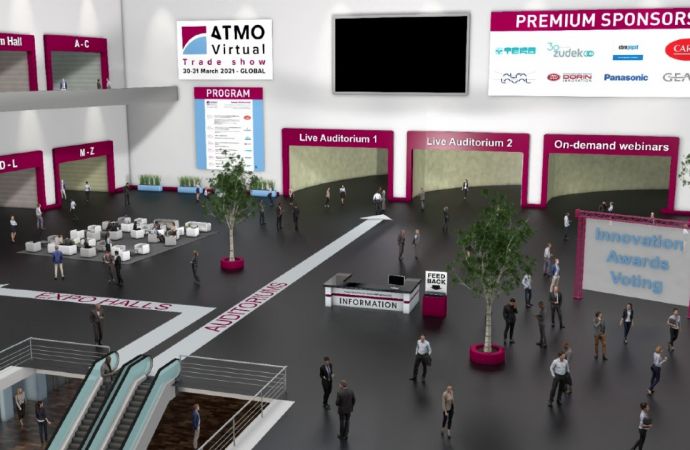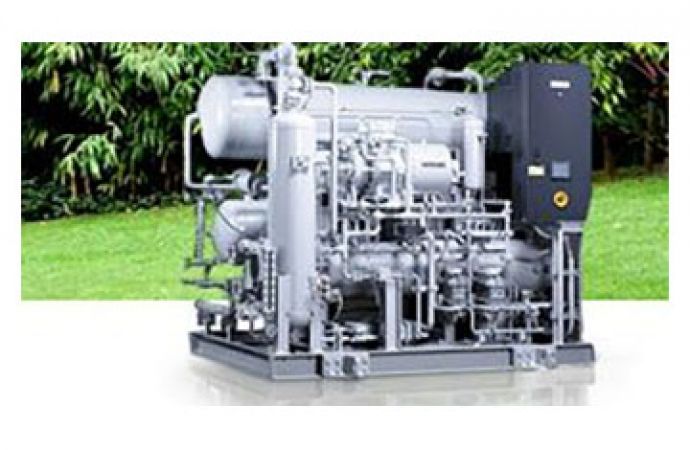The UNIDO ATMOsphere Technology Summit 2013 Review Panel is now accepting case study abstracts for the two planned Technology Case Study Sessions.
Studies should focus on the real costs incurred by business owners in developing countries when opting for natural substances, as well as on the cost-effectiveness of natural substances over time.
Abstract Submission Deadline: 31 March 2013

Who can apply:
End-users, business owners, manufacturers, consultancies etc. using, producing or advocating natural refrigerant systems in a developing country or that have clear potential to be used in a developing country.
Presenters need to plan for a 12 minute presentation + 3 min Q&A.
Application areas:
Special consideration will be given to:
Submission criteria:
The focus of the case studies should be on completed or ongoing projects, best practices and lessons learned in the field of natural refrigerants in developing countries. The case study should be a practical summary of an improved practice rather than a formal, rigorous research paper. Ideally, it should provide and analyse real life results relating to the energy efficiency and reliability of a HVAC+R technology using one or multiple natural refrigerants.
Main criterion is that the technology is either applied in a developing country or has clear potential to be used in developing countries. Costs of the whole life cycle play an important role during all sessions of the conference. Projects in regions with warm climates will be one of the main topics of discussion. Also aspects covering training and safety are welcome to be mentioned in the case study.
Should you wish to provide your input in the above-mentioned fields, you are invited to send an abstract which satisfies the following criteria:
Elements that should be included:
Author content and format guidelines:
In your case study submission, you need to include:
Required: If not obvious from the abstract and title, authors must provide a short explanation of how and why this case study is relevant for developing countries and what the costs involved are.
Please submit your case study via email to: info@ATMO.org and indicate "UNIDO ATMO" in the subject line and in the case study itself.
Deadline for case study submission is 31 March, 2013
End-users, business owners, manufacturers, consultancies etc. using, producing or advocating natural refrigerant systems in a developing country or that have clear potential to be used in a developing country.
Presenters need to plan for a 12 minute presentation + 3 min Q&A.
Application areas:
- Commercial & Light-Commercial Refrigeration
- Industrial Refrigeration
- Air Conditioning (Mobile & Stationary)
- Heat Pumps
- Transport
- Foam blowing agents
- New areas of application
Special consideration will be given to:
- Technologies applicable in warmer climates
- Cost-efficiency of the whole life cycle
- Geographical area (ideally developing countries)
- Training and safety aspects
Submission criteria:
The focus of the case studies should be on completed or ongoing projects, best practices and lessons learned in the field of natural refrigerants in developing countries. The case study should be a practical summary of an improved practice rather than a formal, rigorous research paper. Ideally, it should provide and analyse real life results relating to the energy efficiency and reliability of a HVAC+R technology using one or multiple natural refrigerants.
Main criterion is that the technology is either applied in a developing country or has clear potential to be used in developing countries. Costs of the whole life cycle play an important role during all sessions of the conference. Projects in regions with warm climates will be one of the main topics of discussion. Also aspects covering training and safety are welcome to be mentioned in the case study.
Should you wish to provide your input in the above-mentioned fields, you are invited to send an abstract which satisfies the following criteria:
- Sustainable: The case study should address the potential of natural refrigerant technology (CO2, ammonia, hydrocarbons, water and air)
- Replicable: Lessons learned that could be applied to other projects with focus on how to apply this to other developing countries
- Tangible: Examples of real life installations and demonstration projects, laboratory testing with tangible results etc.
Elements that should be included:
- Efficiency analysis: analysis of how the refrigerant influences the Coefficient of Performance (COP), comparison of different systems or parameters, etc.
- Cost analysis: energy costs, operational costs, planning and installation costs, life-cycle costs
Author content and format guidelines:
In your case study submission, you need to include:
- Your full name, organisation and email address
- Case study title
- An abstract
- Keywords
Required: If not obvious from the abstract and title, authors must provide a short explanation of how and why this case study is relevant for developing countries and what the costs involved are.
Please submit your case study via email to: info@ATMO.org and indicate "UNIDO ATMO" in the subject line and in the case study itself.
Deadline for case study submission is 31 March, 2013
MORE INFORMATION
Related stories





